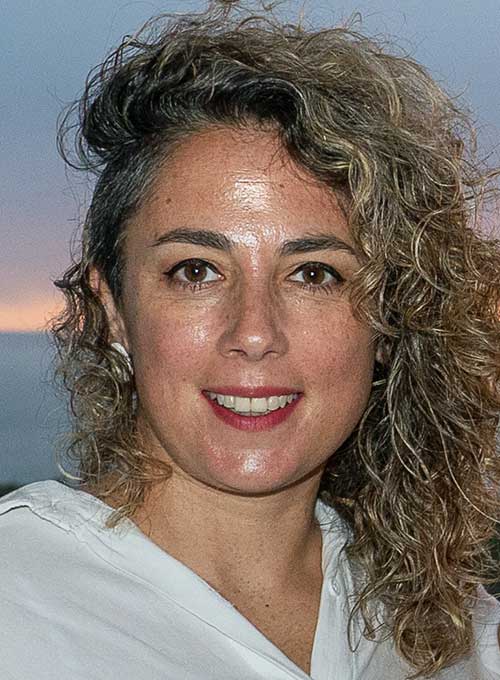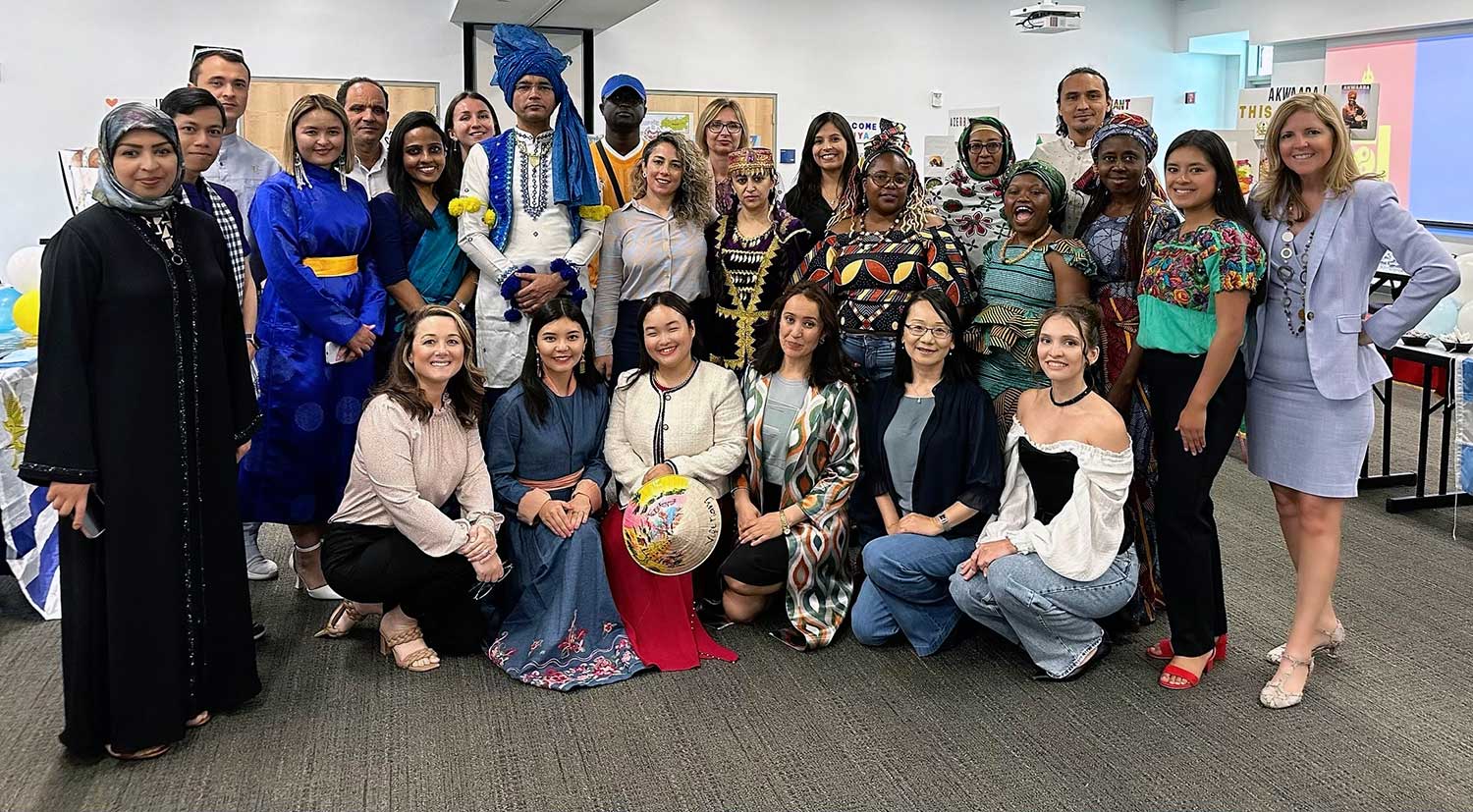Luciana Gregorini, a secondary school teacher of English as a foreign language from Mar del Plata, Argentina, recently spent six weeks in Southwest Florida learning about American schooling and observing and co-teaching classes. She discovered that students “have all the resources they need,” especially regarding technology, and noted how hard teachers work.
She returned to her home country with what she described as “a different perspective on how to teach English.” She acquired cutting-edge tools and methods she can implement in the classroom, she said, along with a deeper understanding of education and culture in the United States and beyond.
Gregorini was one of 23 teachers from 20 countries who participated in the third Fulbright Teaching Excellence and Achievement (TEA) program hosted by FGCU from Jan. 24 to March 11. During their time here, they attended seminars taught by FGCU professors or administrators on subjects such as teaching methodologies and instructional technologies. They observed and co-taught classes at nearby high schools and shared aspects of their cultures with local students.


The Fulbright TEA scholars also enjoyed cultural immersion activities such as weekend outings to Babcock Ranch, the Naples Botanical Garden and Miami. Additionally, members of the Naples Council on World Affairs volunteered to serve as “friendship families” to the scholars, taking small groups on excursions throughout Southwest Florida.
You might also be interested in this story:
Young African leaders build on civic engagement skills at FGCU
The Fulbright TEA program at FGCU is sponsored by the U.S. Department of State’s Bureau of Educational and Cultural Affairs, with funding provided by the government and administered by International Research & Exchanges Board (IREX).
Since 2021, FGCU has been hosting TEA participants under the direction of Ally Zhou, who secured State Department funding of over $333,000 to pay for this year’s program.
Zhou, a professor of English for speakers of other languages in FGCU’s College of Education, said hosting the program “aligns with the university’s strategic plan to internationalize our campus.”
“It brings world culture to our students, faculty and staff. It puts the university on the map of the U.S. Department of State and on the world map.”
Ally Zhou
Several scholars interviewed deemed it a success. One of the most important reasons was the opportunity to gain hands-on knowledge of the latest technological advances in education.
Janyerkye Aldanish, an English teacher from Mongolia, said she learned a lot about artificial intelligence. She praised its capability to help formulate higher-level questions for her students.
AI has great potential for language learners lacking access to native speakers for authentic, individualized language practice, interaction and feedback.
You might also be interested in this story:
Students gain life-changing experiences through national fellowships, scholarships
Due to budgetary constraints, schools in many of the TEA participants’ home countries either lack the technology commonly found in their American counterparts, or they are just beginning to introduce it. The Fulbright program responded to this reality by teaching how to achieve the same academic objectives in tech-enhanced and traditional environments.
Eileen DeLuca, who serves as the interim chief strategy and program innovation officer in FGCU’s Academic Affairs division, conducted a seminar for Fulbright scholars on teaching strategies and methodologies. She emphasized the importance of thinking critically about AI-generated content and how it can support teaching and learning. She said the scholars learned to “think about how to use technology effectively and how not to let it dominate and become the teacher.”
Each participant spent 60 hours observing and co-teaching classes at Estero or Dunbar High School. They often drew on what they learned at FGCU’s seminars.
These experiences yielded useful insights for Fatma Ismail of Kenya, who conducted her fieldwork at Dunbar. She said she now wants to make teaching more fun and creative, less reliant on traditional “talk and chalk.”
You might also be interested in this story:
FGCU super-student brings understanding, compassion to cancer research
Abena Duku of Ghana noted that her English students back home lack the assertiveness to ask questions. She said the TEA program has taught her techniques to change that.
Nixon Contreras, who teaches physics at a high school in Colombia, discovered that he shares a great deal in common with his American colleagues and fellow scholars.
“We have very similar problems and challenges,” he said. “I feel like I’m not alone. We’re all trying to better prepare our students for life.”
Will Fulbright TEA continue at FGCU? DeLuca and Zhou certainly hope so.
DeLuca called the program “one of the most important professional development experiences I’ve had in my life” because the learning goes both ways. The scholars “are also teaching us strategies,” she said. “They’re teaching us about their countries and their cultures.”
Zhou echoed this sentiment. “It’s so important to provide opportunities for people from different cultures to develop cross-cultural understanding,” she said.
Fulbright Teacher Exchanges are programs of the United States Department of State, administered by IREX. The information presented does not represent the views of the U.S. Department of State, the Fulbright Program or IREX.